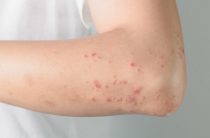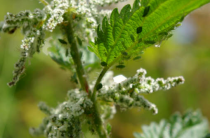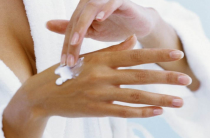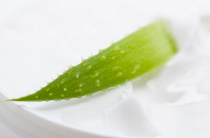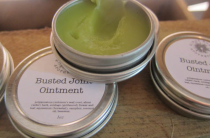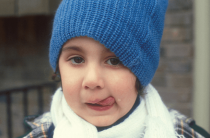During pregnancy, the girl's body undergoes some modifications. All systems are being rebuilt, including the hormonal one. All this affects the condition of the skin, which is due to the reactions of the immune system. As a result, girls often suffer from periodic rashes called hives. It is not easy enough to diagnose. And even more so during the periods of bearing a baby. It is very difficult to determine the true cause of its manifestations, which postpones treatment indefinitely.
How urticaria manifests itself
Urticaria is characterized by rashes in the form of small red spots all over the body. If they are not detected during the time and therapy is not started, they develop into larger blisters, sometimes reaching 12-15 cm. All this is often accompanied by severe itching and burning. For pregnant women, a frequent place of dislocation is the abdomen, thighs, buttocks, arms. Less common on the face and neck.
Urticaria by itself does not affect the fetus. It all depends on the cause of its occurrence. Dangerous for the unborn baby is the nervous state of a woman. Due to itching, expectant mothers often suffer from insomnia. Such conditions are strictly contraindicated. If it is not detected in time, it often becomes chronic. It is characterized by periodic occurrences, most often from the use of unsafe food or contact with various allergens.
Causes of hives in pregnant women
Experts identify a wide variety of causes of hives in pregnant women. Often it develops against the background of some allergic manifestations. So, a rash on the body may indicate the presence of hay fever. Walking outdoors in dry calm weather should be avoided. Also, pregnant women are prohibited from long outdoor recreation.
In most cases, urticaria is diagnosed due to a food allergy. At this time, women try to eat more fruits without controlling their quantity. Their excessive consumption often has a detrimental effect. The body begins to react to the consumption of other foods. Therefore, it is very important to follow a hypoallergenic diet, which implies the exclusion of such products:
|
|
|
Potatoes should be used with caution. It requires soaking in water for several hours before cooking. This will help get rid of the maximum amount of starch contained in it. Vegetables of bright colors also require caution.
Allergic urticaria during pregnancy occurs against the background of the use of many cosmetics. In this regard, the use of decorative cosmetics is prohibited. Creams and body lotions are allowed only hypoallergenic, purchased in pharmacies. Many of the products in their composition contain plant components (herbs) that can harm, such as nettle, chamomile, angelica and others.
During pregnancy, girls need to stop using certain medications: antibiotics, hormonal drugs, some drugs to normalize the work of the heart. Sometimes anti-inflammatory drugs can provoke hives. The rash may not begin from the first day of admission, but after up to two weeks in time. Therefore, for any ailments, you must contact your doctor.
Specialists are prohibited at this time from contact with strong chemicals found in household chemicals. The woman's body directs all its forces to protect the fetus, thereby she herself is significantly weakened, and the immune system gives the wrong reaction. In some cases, an acute form of urticaria may occur, which is quite difficult to get rid of, since many drugs are contraindicated during this period. Any physical manifestation of the disease delivers a load on the nervous system. Stress, nervousness and lack of sleep significantly increase its manifestations. In addition, such mental instability can harm the child. Among the causes are various viral and infectious diseases.
Treatment of urticaria in pregnant women with medications
Treatment of urticaria during pregnancy is to exclude contact with a possible allergen. So, often this is a food product, so you need to reconsider your diet. For a mild form of rashes, this will be enough: the blisters will come down for after debugging their nutrition. More severe and prolonged manifestations require medical intervention. To do this, be sure to consult a doctor for the appointment of antihistamines. It is impossible to do this on your own, since these funds are strong enough and can affect the fetus.
Some antihistamines:
| cetirizine | The drug belongs to the second generation. Removes any allergic symptoms. Allowed under medical supervision from the second trimester of pregnancy. |
| Suprastin | Despite its rather mild effect, it is used extremely rarely during pregnancy, only with a justified risk. Removes skin inflammation, angioedema. |
| Fexofenadine | Pregnant women are used only if a clear dosage is observed. Not adhering to this, there may be violations in the development of the fetus. The drug copes well with allergic rhinitis, urticaria, various forms of dermatitis. |
| Desloratadine | The remedy in a short period of time relieves any manifestations of the disease, including acute urticaria and Quincke's edema. Rarely used during gestation. |
| Levocetirizine | Having identified all the risks, doctors can prescribe therapy with this drug from the second trimester. Great for dealing with skin problems. |
It is worth mentioning the many illegal drugs. So, Diphenhydramine is categorically not recommended in any trimester of pregnancy, as it can provoke uterine tone. Tavegil causes some malformations in the development of the baby's organs. Betandrine delays lung development in an unborn child. Other prohibited drugs:
- Ketotifen;
- Astemizol;
- Pipolfen;
- Claritin.
Be sure to take enterosorbents in the complex, which will remove the harmful component from the body of the expectant mother. Sometimes these drugs alone are more than enough. Enterosgel is considered the most effective. Once in the stomach and intestines, it has an enveloping effect, which helps prevent re-exposure to the allergen and protect the mucous membranes. You can also use activated charcoal, Atoxil, Polysorb, white charcoal.
As for ointments, any non-hormonal representatives of them are allowed here. They have a cooling effect on the affected areas of the skin, thereby relieving itching and burning of wounds, redness and inflammation. Promote rapid healing and restoration of the epidermis. They are absorbed very quickly, which is why they do not leave greasy marks on the body and clothes. Used several times during the day. We can include among them:
|
|
|
Traditional Medicine Tips
Many populists claim that urticaria during pregnancy is perfectly cured with the help of traditional medicine. It is also considered the safest method during this period. If a woman suffers from insomnia against the background of itching urticaria, it is recommended to rub the affected areas with a solution of salicylic acid or diphenhydramine. It will be useful to drink decoctions of celandine - this will help to disinfect the intestines and rid the body of toxins.
Well relieve inflammation herbal baths. Dried elderberry and nettle will help with this. The use of needles will relieve burning sensation. If it is not possible to use natural products, you can add their essential oils: eucalyptus, fir, pine, lemon balm oil. Pregnant women are advised to periodically drink freshly squeezed juices from celery and parsley. You can prepare a mixture of honey and horseradish juice. These components are taken in the same amount. Can be stored in the refrigerator, and consumed three times a day, a teaspoon inside.
The use of mint infusion will help protect the body and strengthen the immune system. Mint and chamomile should be drunk throughout the day instead of the usual simple tea. It will not be difficult to prepare a simple ointment for hives: mix rice starch and glycerin in equal proportions. Within a couple of days, there will be no trace of hives.
Diet for pregnant women with hives
Even in the absence of any deviations in the state of health, pregnant women need to follow a strict diet. And even more so with hives. To do this, the following products will be turned off from the diet:
|
|
|
It is required to be very attentive to the manifestations after the use of fermented milk products. Sometimes the body can give a reaction to them. If this happens, it is necessary to minimize their use. Women are forbidden to eat fatty meats. At the time of bearing a child, it is necessary to give preference to its useful dietary varieties: turkey, rabbit, beef. A huge amount of vitamins and essential components enters the body with the consumption of cereals and cereals. The only "harmful" cereal is semolina. I advise you to lean on any kind of cabbage and yellow vegetables.
I would like to give one more piece of advice - get yourself a food diary. This attribute is very relevant at the time of gestation. Its essence lies in recording each meal, time, volume, body reaction and a possible allergen. Registration is done daily, without gaps. This will help both you and the doctor to identify the causes and quickly rid you of the disease.
Prevention
To protect yourself from hives, a pregnant girl must follow the following rules:
- Minimize any contact with animals;
- Do not prescribe independent drugs and herbal medicine;
- Maintain cleanliness in the house;
- Avoid frequent contact with household chemicals;
- Observe proper nutrition;
- Maintain personal hygiene;
- Do not enter into conflict and stressful situations.
